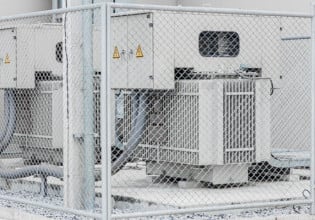Texas Instruments Unveils TPS62110 Power Conversion IC
Texas Instruments Inc. (TI, Dallas, TX) unveiled a new 1.5 A synchronous, step-down, dc-dc converter, the TPS62110, which supports from 3.1 V to 17 V of input voltage. The integrated circuit achieves 95 percent power efficiency to extend battery life in industrial handhelds, portable test equipment, and consumer devices powered by two-cell to three-cell, lithium-based batteries, or a 12 V power source.
The new TPS62110 step-down converter with integrated FETs delivers power conversion efficiency and performance in a lead-free, 4 mm x 4 mm, QFN package. The device, which leverages T's new LBC7 analog process manufacturing technology, is able to maintain high efficiency over a wide load current range by entering a power-saving pulse-frequency modulation mode at light load currents, and supporting output voltages from 16 V down to 1.2 V. The converter can be placed in a shut-down mode, reducing power consumption to less than 2 µA.
The converter's 1 MHz switching frequency allows portable device designers to reduce board space by applying smaller external components without compromising performance and efficiency. The TPS62110 can be synchronized to an external clock signal between 0.8 MHz and 1.4 MHz. For even lower noise operation, the converter can operate in a pulse-width modulation-only mode. TI complements the TPS62110 with its new dc-dc boost inverter in a 3 mm x 3 mm QFN package, the TPS63700, which provides an 800 mA typical switch current limit and converts an input of 2.7 V to 5.5 V to an output voltage as low as -15 V. The TPS63700 is suitable for precision amplifiers and data converters used in industrial applications that require both positive and negative power supply voltages.
The TPS6211x family of converters is now available. The TPS6211x dc-dc converters come in a reliable, 16-pin, QFN package, and are priced at $2.50 each in quantities of 1,000 units. The TPS63700 inverter is currently sampling with volume production expected in September.






